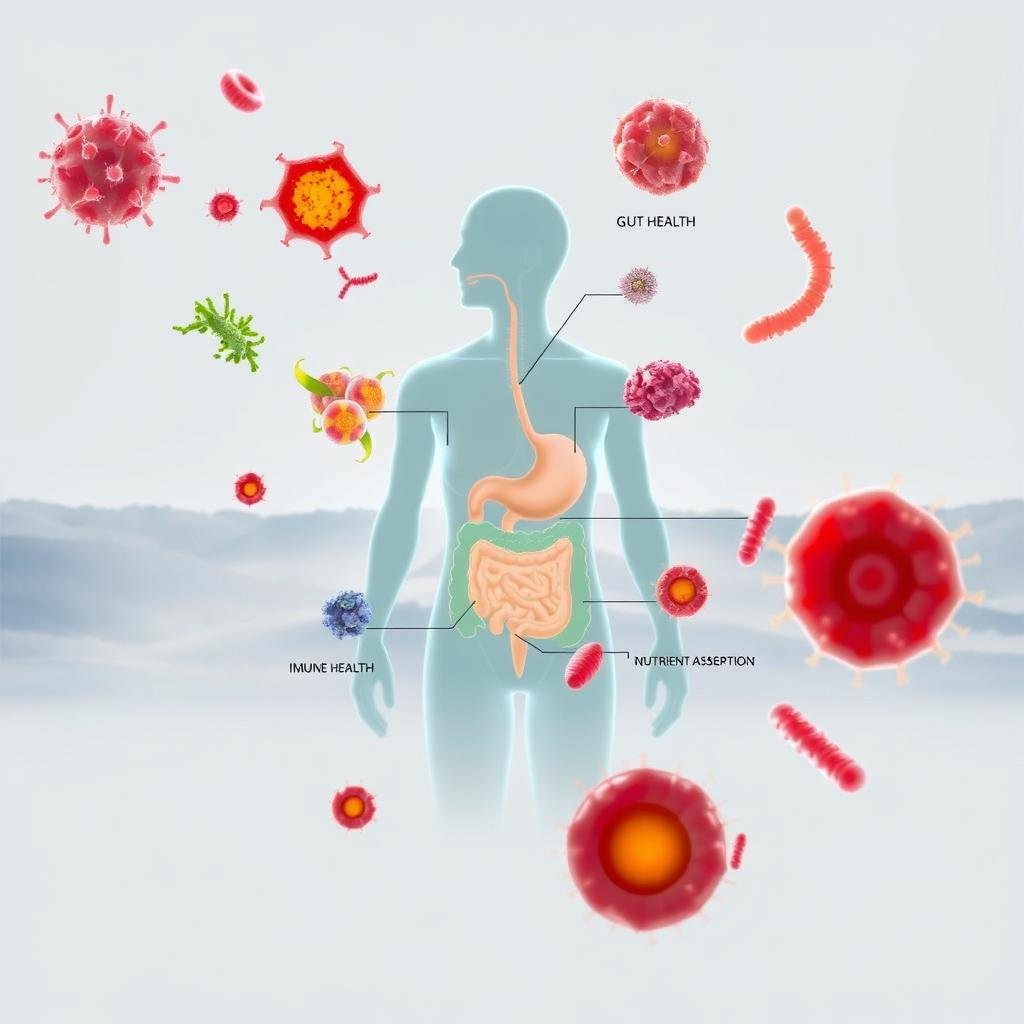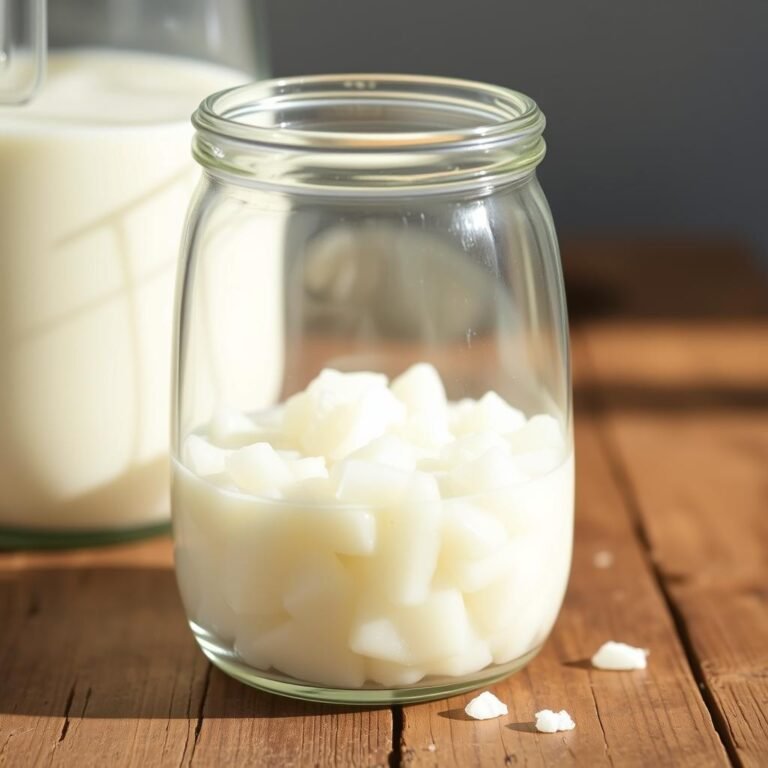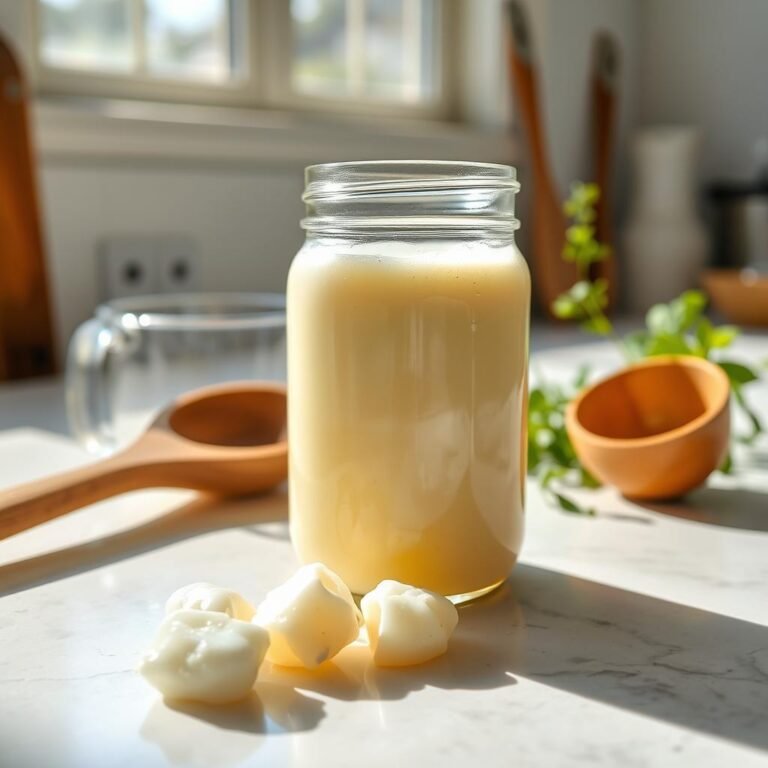Probiotics: What Is It and Why Your Gut Needs It

Probiotics are live microorganisms that help keep us healthy. They support our body’s functions and keep bad microbes in check. These good microbes live in places like our gut and skin, helping our local microbiota.
Probiotics come in supplements and topical products. They aim to increase good microbes and fix imbalances. Knowing probiotics what is it shows how vital they are for our health.
Probiotics can boost our immunity, lower inflammation, and help with bowel movements. Adding them to our diet can bring many probiotics benefits. These benefits support our gut health and overall wellbeing.
Probiotics: Definition and Importance
Probiotics are live microorganisms, often called “good bacteria.” They are added to the body to improve health. You can find them in supplements and foods like yogurt.
What Are Probiotics?
The World Health Organization (WHO) says probiotics are live microorganisms. They help the body when given in the right amounts. These good bacteria help balance the gut’s bacteria.
The first probiotic found was Lactobacillus bulgaricus in Bulgarian yogurt in 1905.
Why Are Probiotics Important for Health?
Probiotics help keep the gut balanced. This balance is key for good digestion. They can also help with irritable bowel syndrome (IBS).
They are good after antibiotics or when you’re sick. This helps get the gut’s bacteria back in balance. The best probiotics have microbes that survive digestion. Lactobacillus and Bifidobacterium are common types.
For more info, check out this link about probiotics.
Here’s a table comparing common probiotic supplements and their benefits:
| Probiotic Species | Common Sources | Health Benefits |
|---|---|---|
| Lactobacillus | Yogurt, Kefir, Probiotic Supplements | Improves Digestive Health, Enhances Immune Function |
| Bifidobacterium | Fermented Foods, Probiotic Supplements | Reduces IBS Symptoms, Balances Gut Microbiota |
How Probiotics Work in Your Body
Probiotics help by making your gut microbiota better. This group of tiny living things is key for absorbing nutrients and fighting off bad bugs. They also help your immune system work right.
By changing your gut’s balance, probiotics make your digestive system healthier. They can help with problems like IBS, Crohn’s disease, and ulcerative colitis. This is because they keep the good and bad bacteria in check.
The Role of Gut Microbiota
The gut microbiota is very important for your health. It helps you digest food and keeps bad bugs away. By using the right probiotics, you can make your gut microbiota work better.
Research shows that a healthy gut microbiota can lower inflammation. It also boosts your immune system. This can help prevent many stomach problems.
Probiotics and Digestive Health
Probiotics are great for your digestive health. They help with digestion, reduce bloating, and ease symptoms of many stomach issues. They introduce good bacteria like Lactobacillus and Bifidobacterium.
These good guys fight indigestion and help you have regular bowel movements. Each type of probiotic has its own benefits. Ongoing research keeps finding new ways probiotics improve gut health.
Types of Probiotics and Their Benefits

Probiotics like Lactobacillus and Bifidobacterium boost our health in different ways. They are chosen for their health benefits and ability to survive digestion. This ensures they give us the most health benefits.
Lactobacillus Species
Lactobacillus is found in food and supplements. It helps with digestion and improves gut health. Lactobacillus rhamnosus GG is known for fighting diarrhea and skin issues.
Bifidobacterium Species
Bifidobacterium is great for regular bowel movements and a strong immune system. Bifidobacterium longum and Bifidobacterium breve help with skin problems and digestion.
Other Common Probiotics
Other probiotics, like Saccharomyces boulardii, also offer health benefits. They help with diarrhea caused by antibiotics. These probiotics support gut health and boost immunity. Learn more here.
Probiotics for Gut Health

Probiotics are getting a lot of attention for gut health. They help keep the gut balanced and prevent problems like diarrhea or constipation. It’s important to know the right probiotics dosage and any side effects.
Maintaining Digestive Balance
A healthy gut is key for good digestion. Probiotics help by growing good bacteria. This helps break down food and absorb nutrients.
Finding the right probiotics dosage is important. It makes sure the gut has enough good bacteria. This improves digestion and health.
Preventing and Treating Dysbiosis
Dysbiosis is when the gut’s bacteria are out of balance. It can cause health problems. Probiotics fix this by balancing the bacteria.
Choosing the right probiotics dosage is key. It helps avoid side effects. Taking probiotics regularly keeps the gut healthy.
Probiotics and Immunity

Probiotics are good bacteria that help your immune system. They are key to keeping your body strong.
One big probiotics benefit is boosting your immune system. They help your gut stay healthy. This makes your body better at fighting off sickness.
Boosting Your Immune System
Probiotics can make your immune health much better. They help reduce inflammation and talk to your immune cells. This helps your body fight off bad stuff better.
Probiotics also help with immune diseases. Some strains can make your body less allergic and less inflamed. Eating probiotics regularly keeps your immune system strong.
Probiotics are very important for your immune system. They help you stay healthy and well. It’s good to know about probiotics and add them to your diet.
| Probiotic Function | Immune Benefit |
|---|---|
| Regulation of Gut Microbiota | Supports a balanced immune response |
| Reduction of Inflammatory Responses | Decreases susceptibility to infections |
| Stimulation of Regulatory T-cells | Minimizes allergic responses and inflammation |
| Enhanced Immune Cell Activity | Boosts overall immunity |
Natural Sources of Probiotics
Adding natural probiotics to your diet is great for your gut. Foods like fermented products have good bacteria for a healthy gut. Try adding these tasty foods to your meals for better gut health.
Fermented Foods and Drinks
Fermented foods and drinks are full of probiotics. Drinks like kombucha are a fun way to get probiotics. Eating these foods daily helps with digestion and keeps you healthy.
Yogurt, Kefir, and Cottage Cheese
Dairy products like yogurt, kefir, and cottage cheese are full of probiotics. Yogurt and kefir are great for adding probiotics to your diet. Cottage cheese, with live cultures, is also good for you.
Miso Soup, Sauerkraut, and Kimchi
Miso soup, sauerkraut, and kimchi are tasty and full of probiotics. They are common in many dishes and offer lots of good bacteria. Eating them often can really help your digestion.
Probiotics Supplements: What You Need to Know
Probiotics supplements are popular for improving gut health and overall well-being. When picking the right probiotics dosage, consider several factors. These include the specific strains, your health condition, and expert advice.
Selecting the Right Supplement
Choosing the right probiotic supplement means knowing the strains good for your health. Look for products with strains backed by science. Also, check if the microbes can survive digestion.
High-quality supplements have third-party tests and certifications. These ensure the product works well and is safe.
Tips for Safe Consumption
Start with a small dose of probiotics and slowly increase it. This helps your body adjust. Knowing about possible side effects is key, as some might feel a bit sick in their stomach.
Talking to a healthcare provider is a good idea. They can help make sure the probiotics are right for you. They also check for any bad reactions with other medicines.
Probiotics Research: What Science Says
Studies on probiotics show promising results. They help with certain health issues and improve gut health. Different probiotics work better for different problems, so research is key.
Scientists are studying how probiotics work with our gut. They want to know which ones are best for health. For example, Lactobacillus and Bifidobacterium might help with IBS and boost our immune system.
Not all probiotics are the same. Each one works differently. This means we need to find the right one for our health needs. Knowing this helps us choose the best probiotics for us.
- Exploring the interaction between probiotics and gut microbiota
- Identifying effective strains for specific conditions
- Guiding informed decisions on probiotic use
As research goes on, we learn more about probiotics. This helps us use them wisely in healthcare. It’s an important journey for our health.
Probiotics What Is It: Dosage and Side Effects
Knowing the right probiotics dosage is key to getting the most benefits. The amount needed can change based on the strain, health goals, and personal health. For everyday health, 1 to 10 billion CFUs a day is often suggested. But, if you need more help, a doctor might recommend a higher dose.
Probiotics are usually safe, but you might feel some side effects at first. You might get a bit of gas or bloating. But, these usually go away as your body gets used to it. Rarely, serious side effects can happen, mostly in people who are very young, old, or have weak immune systems.
It’s important to talk to a healthcare expert before starting probiotics. They can tell you the best type and how much to take. They can also check if probiotics might affect other medicines or health issues. This way, you can enjoy the good effects on your gut and health without worries.





